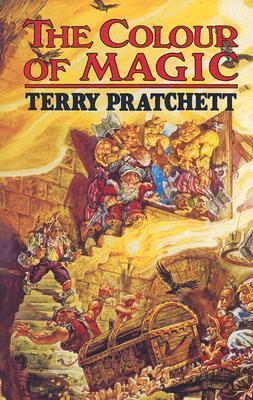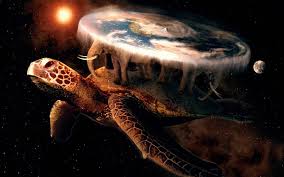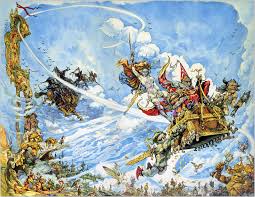Terry Pratchett was the acclaimed creator of the global bestselling Discworld series, the first of which, The Colour of Magic, was published in 1983. His fortieth Discworld novel, Raising Steam, was published in 2013. It is a world peopled by incompetent wizards, upside-down mountains, slow-witted barbarians and a wry incarnation of Death which began as a cheerful parody of fantasy authors from JRR Tolkien to Ursula K Le Guin. His 70 plus novels are reported to have sold more than 75 million copies; he was one of the UK’s most beloved authors. There were so many visitors to his website after the news of his death earlier this year at the age of 66 his publisher’s website crashed.
Pratchett took the disparaged literary genre of fantasy and made it dance. His books have been widely adapted for stage and screen, and he is the winner of multiple prizes, including the Carnegie Medal, as well as being awarded a knighthood for services to literature.
Terry faced his disease (an ‘embuggerance’, as he called it) publicly and bravely. Over the last few years, it was his writing that sustained him. His legacy will endure for decades to come.
The announcement came in typically irreverent manner on the author’s Twitter feed, with a series of tweets beginning in the voice of his character, Death: “AT LAST, SIR TERRY, WE MUST WALK TOGETHER.”
“Terry took Death’s arm,” the following tweet read, “and followed him through the doors and on to the black desert under the endless night.”
The novelist AS Byatt, a longtime champion of Pratchett’s work, told the Guardian newspaper in England: “No writer in my lifetime has given me as much pleasure and happiness. He could do knockabout for schoolboys (and girls) but he was also subtle and wise and very funny in the adult world. I loved him because almost all the characters he didn’t like slowly grew more real, more interesting, more complicated perhaps to his own surprise.
“He could write evil if he needed to, but if he didn’t his characters surprised us and him. His prose was layered: there was a mischievous surface, and a layer of complicated running jokes, and something steely and uncompromising that turned the reader cold from time to time. He was my unlikely hero, and saved me from disaster more than once by making me laugh and making me think.”
Born in 1948, Pratchett left school at 17 to work on his local paper, the Bucks Free Press. In a 2011 interview he told the Guardian argued that “there can be no better grounding for a lifetime as an author than to see humanity in all its various guises through the lens of the reporter for the town. All the court cases, such crimes as there were. You got to know the coppers, they told you stuff – for a young man with a pencil, you could do what you wanted, really.”He began writing a series of stories for the newspaper’s children’s corner about a tribe of people called the Munrungs living on a world called Carpet, which became his first novel, The Carpet People, published in 1971. But it was the novel he wrote while working as a publicity officer for the Central Electricity Generating Board, The Colour of Magic, which landed him a six-book deal and allowed him to write full time. In 1996, he became the UK’s top-selling and highest-earning author.





